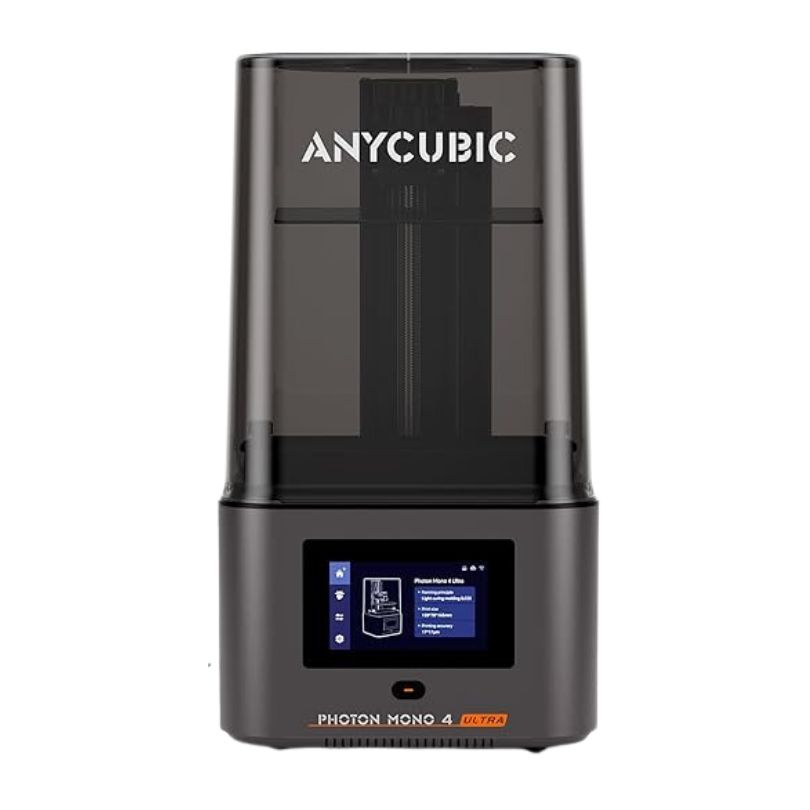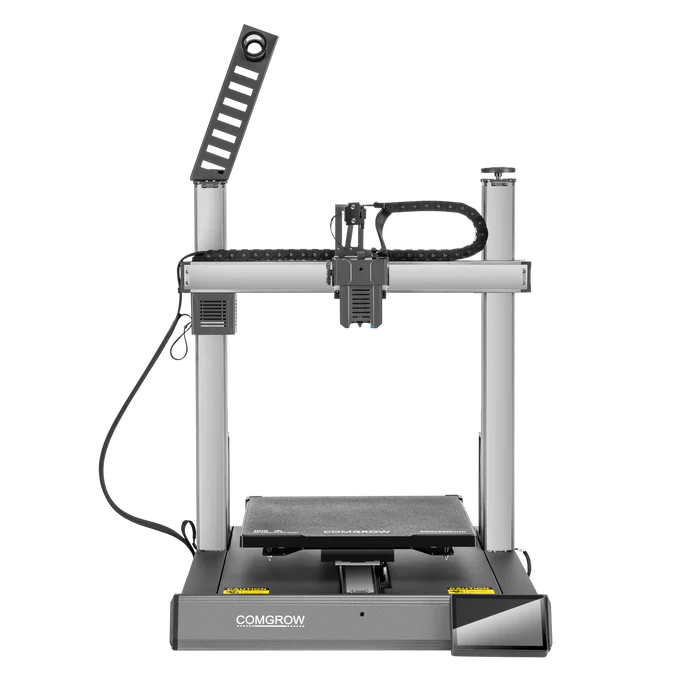Compare Photo Mono 4 Ultra vs Comgrow T300
Comparison between the best 3D printers
Choose the best 3D printer at the best price. The cheapest 3D printers are here.
Buy a 3D printer here with 3D Fila.
 |
 |
|
| Model | Photo Mono 4 Ultra[BUY Photo Mono 4 Ultra] |
Comgrow T300 |
| Printing Material | Resin | Filament |
| Buy Resin for Anycubic Photo Mono 4 Ultra | Buy Filament forSovol Comgrow T300 | |
| Estimated price | $250,00 | $449,00 |
| Manufacturer | Anycubic | Sovol |
| Release Year | 2024 | 2024 |
| Print Volume [mm] | 153x87x165 | 300x300x350 |
| Printer Size [mm] | 231x236x430 | 503x631x831 |
| Weight [kg] | 5 | 17 |
| Power Loss Recovery | NO | YES |
| Maximum Resolution [mm] | 0,01 | 0,1 |
| Processor | 64 bit | |
| Display | Touchscreen 4.3'' | Touchscreen 5'' |
| Power Supply | 150 W | |
| Connectivity | USB | USB, WiFi |
| Operating systems | Windows, Mac | Windows, Linux, Macbook |
| Date of registration in the system | 2024-12-13 | 2024-05-10 |
| Release date | 2024 | 2024 |
| Extra features | The Anycubic Photon Mono 4 Ultra features 10K resolution (9024x5120) with 17x17um pixels and high light uniformity (>=90%) enabled by the COB system with Fresnel lens and uniformity algorithm. It offers a build volume of 153.4x87x165 mm and speeds up to 120 mm/h with high-performance resin. It includes assisted leveling, built-in Wi-Fi, and a redesigned platform for better adhesion and easy model removal. Additionally, it has a print resumption function after power outages, optimizing time and materials. | The Sovol Comgrow T300 printer stands out for its technological innovations and advanced features. With a print size of 300mm300mm350mm, the T300 offers true linear rails on all axes, ensuring greater stability. Its Klipper-based intelligent core and 64-bit microcomputer increase printing speed and quality through pressure advancement and input shaping. The extruder with a gear ratio of 6.5:1 allows for more precise material control, optimizing the printing of flexible materials. In addition, the T300 features a rapid filament cooling system with a high-speed fan and a circular duct piece that improves cooling efficiency. With a 4.3-inch high-refresh rate touchscreen and an 81-point automatic leveling system, the T300 simplifies the preparation and execution of 3D prints. |
| Support for multiple colors and materials (AMS and CFS) | NO | NO |
Notes * |
||
| Cost-benefit | 8 / 10 | 8 / 10 |
| Hardware | 6.3 / 10 | 3.6 / 10 |
| Tela | . | . |
| Print volume | 3 / 10 | 4 / 10 |
| Performance | 9 / 10 | 5 / 10 |
| [BUY Photo Mono 4 Ultra] |
Conclusion |
| In comparing the Anycubic Photon Mono 4 Ultra and the Sovol Comgrow T300, both printers offer valuable features for different user needs and preferences, though they cater to distinct segments of the 3D printing market. The Photon Mono 4 Ultra, priced lower, excels in resolution, with a remarkable maximum resolution of 0.01 mm, allowing for highly detailed prints. It is designed for users prioritizing fine details and high-quality resin prints, particularly in a compact size, making it ideal for home or personal use where space is limited. Its lightweight design and features like assisted leveling and power loss recovery enhance its user-friendliness for beginners. In contrast, the Comgrow T300, despite its higher price, offers a significantly larger print volume and is suited for projects requiring larger objects or multiple prints in one batch. This printer boasts advanced features such as true linear rails and a higher gear ratio in the extruder, which facilitates superior printing speed and precision, especially when handling flexible materials. The T300's added functionalities, including multiple connectivity options and an improved cooling system, position it as a more robust option for advanced users who need versatility and higher production capability. Both printers scored similarly in cost-benefit, but the Photon Mono 4 Ultra stands out for performance and resolution, while the Comgrow T300 shines in stability and versatility for larger prints. Ultimately, the user's specific needs—whether for intricate details or larger production capabilities—will dictate the best choice between these two capable machines. |

